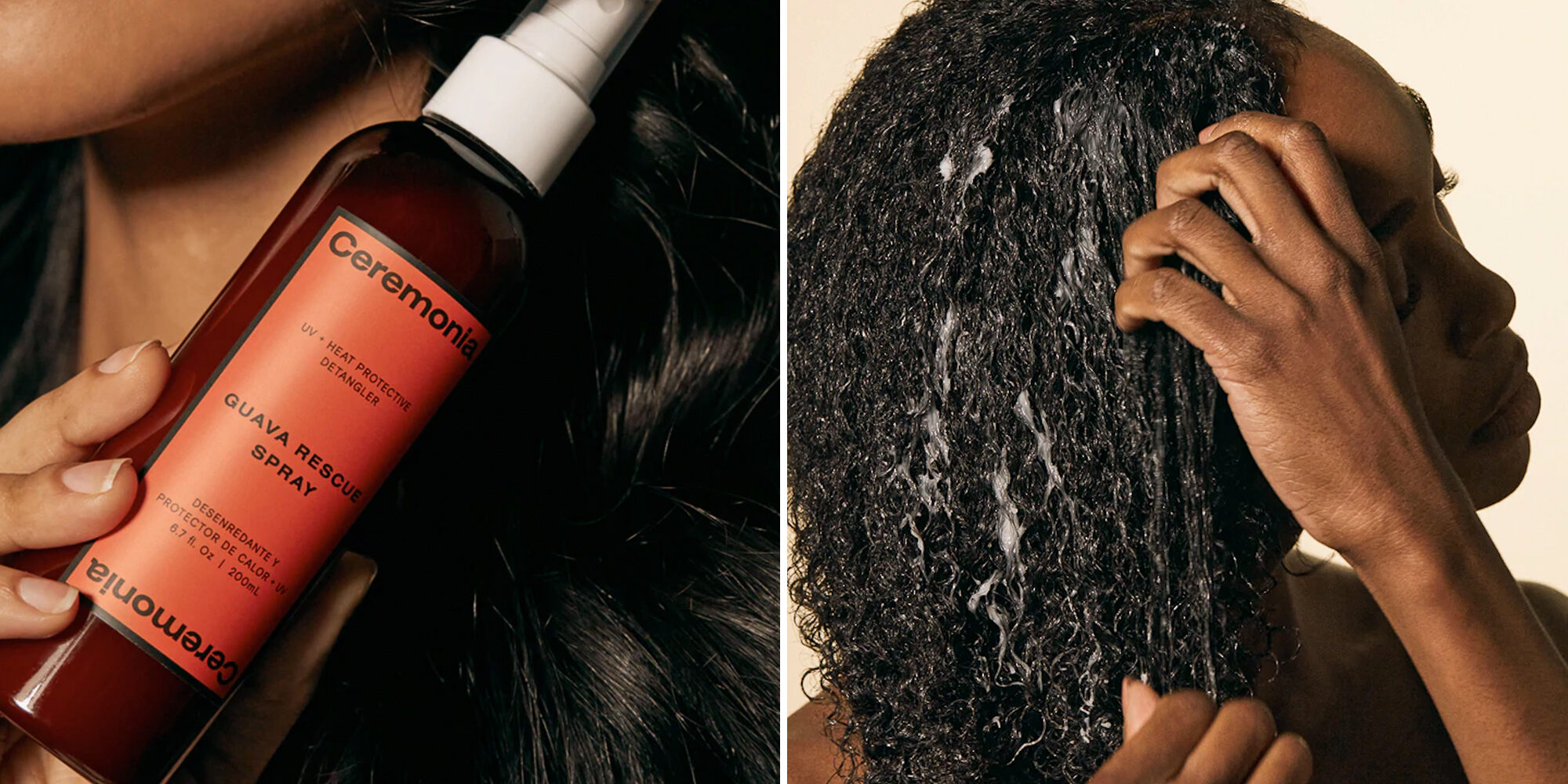
A Peek At Prestige Haircare’s Rise From Two Emerging Brands Enmeshed In It
Haircare, a beauty industry category relatively light on deal activity historically, has seen an explosion of interest of late from investors due to sales growth, a slew of emerging brands and consumers’ willingness to embrace hair health as they’ve done with skin health.
Olaplex’s eye-popping around $1.6 billion 2021 IPO was a haircare milestone and progenitor of further transactions. In the last two months, Unilever announced it’s agreed to acquire a majority stake in Nutrafol, Wella purchased Briogeo and Helen of Troy snapped up Curlsmith.
The “hairification” of skincare characterized by a swelling number of skincare brands expanding into the haircare category is on the rise, putting an even brighter spotlight on the segment. Drunk Elephant, Agustinus Bader, Dr. Barbara Sturm, Derma E, Monday Muse, The Ordinary and Sunday Riley are among the skincare brands that have pushed into haircare.
During last Wednesday’s episode of Beauty Independent’s In Conversation webinar program, we explored the category with entrepreneurs Babba Rivera, founder and CEO of Latinx-inspired haircare brand Ceremonia, and Maeva Heim, founder and CEO of textured haircare brand Bread Beauty Supply, who divulged details about launch and retail strategies, and lessons they’ve learned from steering their buzzy brands.
Launch And Retail Strategies
After working in marketing for headline-making companies like Uber and Away, Rivera started a direct-to-consumer brand marketing agency. Rooted in her DTC expertise, Ceremonia was born in 2020 in the channel. “[Digital] was closer to home for me, and I felt like I would be able to build a brand on our terms,” she said.
Starting in DTC gave Ceremonia room for trial and error, and to establish itself without being forced to respond to outside partners’ needs. It also allowed the brand to closely track analytics and buying behavior, and build a community that would give it leverage for wholesale agreements.
“The Hispanic demographic in the U.S. is the biggest minority, one of the biggest spenders in beauty. They actually spend 46% more on haircare products than non-Hispanics, yet, there is like no haircare aisle that’s authentically speaking to this demographic,” said Rivera. “Now that we have a proof of concept, we can bring our own digital learnings and metrics to negotiate better terms and better deals and greater shelf space with wholesale partners.”
Ceremonia has evolved into omnichannel distribution. It’s currently available at Credo and Net-a-Porter, and will be debuting at another retailer soon. The Credo partnership affords it credibility in the clean beauty space. The retailer’s 10 brick-and-mortar stores and dot-com move a substantial volume of Ceremonia products, but don’t require it to have a large team to manage the relationship. “When you start a company, you’re learning as you go, and Credo allows you to do that,” said Rivera. “They’re used to working with startups.”
Heim had grand retail ambitions for Bread Beauty Supply from day one. In 2018, she entered into discussions with Sephora after meeting Sephora buyers at a conference. A year later, she nabbed a spot in Sephora’s Accelerate program and a contract to put Bread Beauty Supply in the prestige beauty retail power player. Heim said, “I was thinking about how I was shopping other beauty categories, and I wanted to be able to go into a mainstream prestige beauty store like Sephora and buy haircare products that were designed for me in the same environment with the same brand experiences that everybody else was getting.”
Prior to starting Bread Beauty Supply, Heim had experience working in brand management at L’Oréal and Procter & Gamble, which gave her the confidence to take her brand into Sephora. She laid out product pipeline and production plans years in advance of Bread Beauty Supply’s retail premiere. “As a startup, you want to move quickly, and you want to innovate really fast, but, when you are working with a retailer like Sephora, you’re looking at least a year or two years out, sometimes three,” said Heim. “It’s like, oh my God, I’m presenting holiday 2024.”
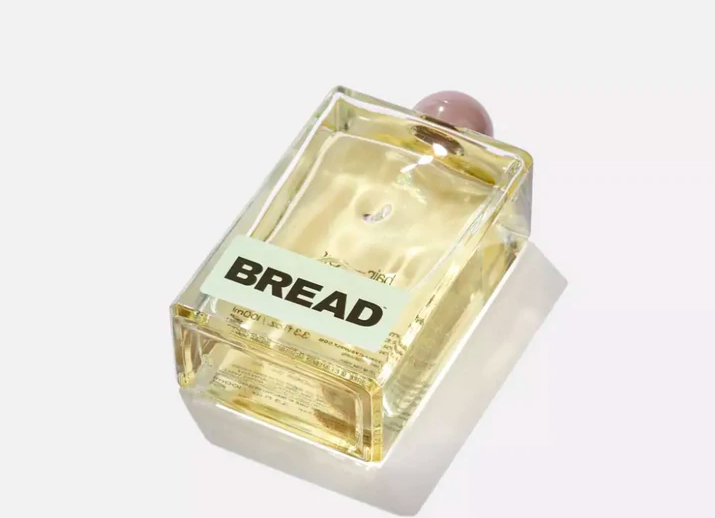
Funding
Heim doesn’t believe beauty brands have to secure external funding to launch successfully. However, she admits succeeding in retail requires substantial capital. Retailers generally command at least 50% margins, and most brands cop to pouring 20% to 30% of retail sales back into marketing and advertising to fuel retail performance.
Bread raised pre-seed and seed funding to pay for products and custom packaging, and cushion supply chain woes spurred by the pandemic, among other reasons. Investors in the brand include Imaginary Ventures, The Center founder and CEO Ben Bennett, Good American co-founder and CEO Emma Greede, and Tatcha co-founder Brad Murray. Heim said the biggest investment Bread Beauty Supply has made to date is in product. She explained, “Keeping and maintaining attention is the name of the game and, for that, you need product.”
To obtain funding, Rivera cobbled together a deck that spelled out the white space Ceremonia addresses and featured testimonials from customers who used early samples of the brand’s products. Ceremonia raised $1 million in a 2020 pre-seed round from investors the likes of Jones Road and Bobbi Brown cosmetics founder Bobbi Brown, Bonobos founder Andy Dunn, Female Founders Fund, So Gal Ventures and XFactor Ventures. “I wanted to build a category-defining business and to do that I knew that I needed to go the VC route in order to grow at the rates that I know we can,” said Rivera.
After receiving funding, Ceremonia highlighted the rarity of Latinas getting funding. ProjectDiane estimates that, by 2020, 90 Latina founders raised $1 million or more in funding. The same year, 93 Black women founders had raised $1 million or more.
“If we’re not even aware of this stats, we aren’t doing anything about it,” said Rivera. “I feel like that opened up a lot of important conversations in the market, which actually helped us when we later went on to do our seed round because some institutional VCs had heard about us through press that had circulated about the fact that Latina founders are so underrepresented.” In 2021, Ceremonia raised a $2 million seed round from investors including Silas Capital and Beliade.
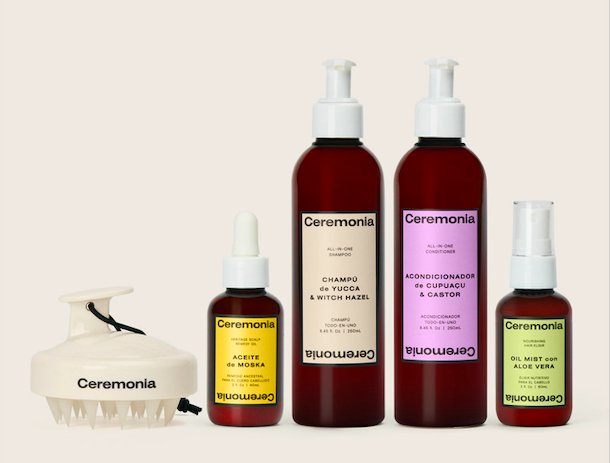
Marketing And The Product Pathway
New Ceremonia customers generally arrive at the brand through its hero product Aceite de Moska, a scalp remedy oil that launched with a scalp massager. Once a customer sees results with that product, they often swap out the conventional shampoos and conditioners they’ve been dependent on for Ceremonia’s clean versions, according to Rivera.
“Most people already have a shampoo and conditioner at home, but they don’t have a scalp ritual in place yet. The media is constantly writing about the importance of scalp health,” she said, elaborating, “We were able to be that one-stop shop for implementing a scalp ritual. And we realized that the friction to have someone convert was low because we were not asking them to replace something they already loved. We were just asking them to give this new thing a try and add it to their routine.”
Targeting demographics digitally completely changed following Apple’s iOS 14 update. Ceremonia had to overhaul its marketing as a consequence, and the brand was able to lower its acquisition costs while increasing traffic by reallocating money from Facebook ads to key partnerships, micro-influencer relationships and affiliate programs. The focus on its community has been a win-win for Ceremonia.
“They’re the best spokesperson for us,” said Rivera. “They’re using our products day and night, they speak the language, they are the customer. Sometimes, it’s more powerful when it comes from a real person and customer versus the brand itself.”
Bread Beauty Supply integrates its brand and Sephora-related marketing. Heim said, “It’s just one big funnel.” Of Sephora, she continued, “This is their model…bringing in new and often smaller brands and helping build them up. You are paying to be there because that on its own is super powerful.”
The brand has benefited from a few pieces of viral content, but the two pieces of content that have been the most effective for the brand involved Sephora customers speaking organically about its products. “We have to invest in driving to Sephora. We give away a lot of margin, but ultimately it works within the total funnel. It all evens out,” she said. “You have to play the Sephora game at the end of the day, and ultimately it’s a bet, but, if it works, it works really well.”
To watch a replay of this episode of Beauty Independent’s webinar series In Conversation as well as other episodes, visit the Replay Library.


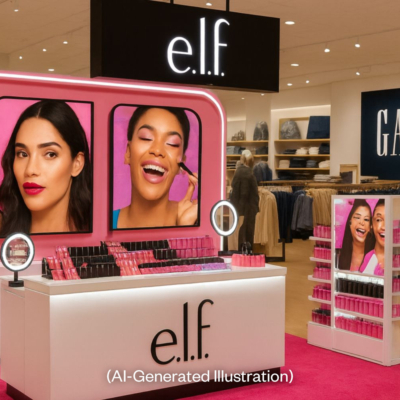
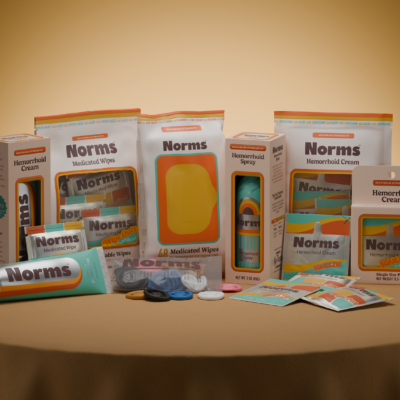
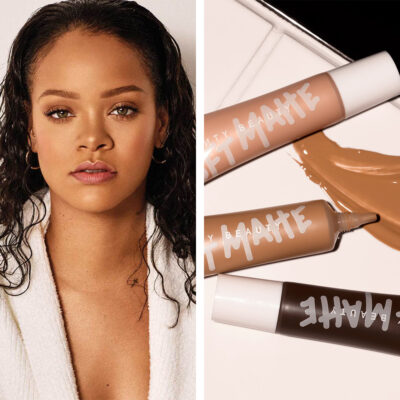
Leave a Reply
You must be logged in to post a comment.